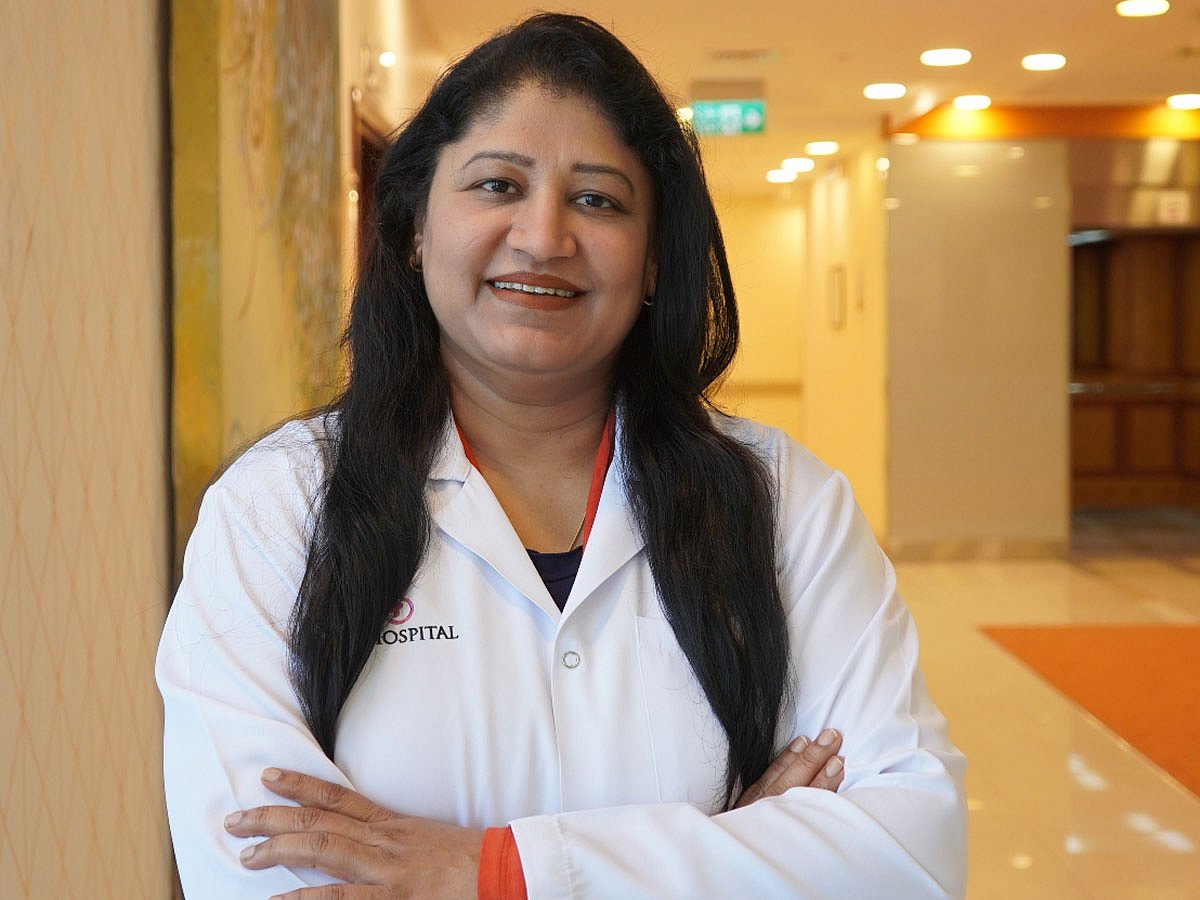Pakistani mother saved in a rare life-threatening cesarean scar pregnancy
The condition leads to uterine rupture, massive internal bleeding, and maternal death

Ras Al Khaimah: When 34-year-old Pakistani mother of four, Asma Sami-ur-Rehman, arrived at the Emergency Department of RAK Hospital with abdominal pain and vaginal bleeding, she had no idea her life was at risk.
Doctors diagnosed her with a caesarean scar ectopic pregnancy (CSP), a rare and potentially fatal condition where the fertilised egg implants into the scar tissue from a previous caesarean section.
While CSP accounts for fewer than 1 in 2,000 pregnancies, the condition is on the rise due to increasing caesarean delivery rates worldwide. If left undetected, it can lead to uterine rupture, massive internal bleeding, and maternal death.
Swift action
Recognising the urgency, the hospital’s multidisciplinary team, led by Dr. Nilesha Chitre, Specialist, Obstetrics and Laparoscopic Gynecology, moved swiftly to save Asma’s life.
“This was a critical case. The pregnancy was growing in a very fragile area, the caesarean scar. Had it ruptured, the bleeding could have been catastrophic. Early diagnosis and a tailored surgical approach made all the difference,” explained Dr. Nilesha.
High-rish
Given the high-risk nature of the case, the team secured informed consent for the possibility of major complications, including massive haemorrhage and even hysterectomy (removal of the uterus). Seven units of packed red blood cells and seven units of plasma were kept on standby, and vascular, general, and gynaecology surgeons were alerted to assist if needed.
Dr Nilesha then performed a meticulous two-step procedure: a diagnostic laparoscopy followed by a laparoscopic-guided vaginal suction evacuation. This hybrid approach allowed her to visualise the bulging gestational sac beneath an intact peritoneal layer and remove it without damaging surrounding tissues.
“To prevent uterine rupture or injury to the bladder, the evacuation was done under direct laparoscopic vision, a method not widely documented in global guidelines because each case is unique,” Dr. Nilesha added.
Asma’s procedure was successful. She required no blood transfusion and received a single dose of methotrexate to ensure full resolution of remaining pregnancy tissue. Within three weeks, her pregnancy hormone levels dropped to required level confirming a complete recovery.
What is Caesarean scare pregnancy
RAK Hospital emphasised that caesarean scar pregnancies, though rare, are increasing silently and often without public awareness. The symptoms including persistent pelvic pain, unusual bleeding, fainting, shoulder pain, or painful urination can easily be overlooked, especially in early pregnancy.
Dr Nilesha noted: “Many women are unaware of this condition, and its warning signs can be easily overlooked. Any woman with a history of caesarean section should have an early ultrasound to confirm the pregnancy location. Timely diagnosis is key to preventing serious complications.”
Timely medial intervention
Dr Raza Siddiqui, Executive Director of RAK Hospital, said: “This case highlights the vital importance of early diagnosis and timely medical intervention. We are proud to offer the expertise and advanced diagnostic technology needed to manage such rare and high-risk cases. Our commitment to patient safety and women’s health remains paramount, and we urge expectant mothers to attend regular check-ups.”
“I would like to extend my heartfelt gratitude to Dr. Nilesha from the Department of Obstetrics and Gynecology at RAK Hospital for performing a successful surgery on my wife, who was diagnosed with a rare and complex condition,” said Asma’s husband, Sami Ur Rehman.
Sign up for the Daily Briefing
Get the latest news and updates straight to your inbox
Network Links
GN StoreDownload our app
© Al Nisr Publishing LLC 2026. All rights reserved.
